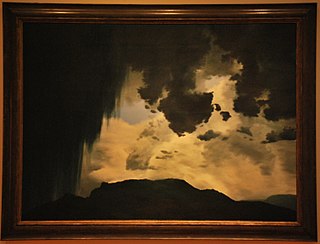A Quote by Robyn Hitchcock
Dreams are a scientific fact.
Quote Topics
Related Quotes
Unfortunately, philosophers of science usually regard scientific realism and scientific anti-realism as monistic doctrines. The assumption is that there is one goal of all scientific inference - finding propositions that are true, or finding propositions that are predictively accurate. In fact, there are multiple goals. Sometimes realism is the right interpretation of a scientific problem, while at other times instrumentalism is.
Mind is nothing but dreams and dreams - dreams of the past, dreams of the future, dreams of how things should be, dreams of great ambitions, achievements. Dreams and desires, that is the stuff mind is made of. But it surrounds you like a China Wall. And because of it the fish remains unaware of the ocean.
To be sure, Darwin's theory of evolution is imperfect. However, the fact that a scientific theory cannot yet render an explanation on every point should not be used as a pretext to thrust an untestable alternative hypothesis grounded in religion into the science classroom or to misrepresent well-established scientific propositions.
I've dreamed landscapes for years, and my dreams play an enormous role in my work. In fact, when I first started doing landscapes I felt insecure about painting in this style, and the dreams were like positive omens for me, and I've done a few paintings that were exact replicas of images that came to me in dreams.
Hitherto the principle of causality was universally accepted as an indispensable postulate of scientific research, but now we are told by some physicists that it must be thrown overboard. The fact that such an extraordinary opinion should be expressed in responsible scientific quarters is widely taken to be significant of the all-round unreliability of human knowledge. This indeed is a very serious situation.
Journalism only tells us what men are doing; it is fiction that tells us what they are thinking, and still more what they are feeling. If a new scientific theory finds the soul of a man in his dreams, at least it ought not to leave out his day-dreams. And all fiction is only a diary of day-dreams instead of days. And this profound preoccupation of men's minds with certain things always eventually has an effect even on the external expression of the age.
The significance of a fact is relative to [the general body of scientific] knowledge. To say that a fact is significant in science, is to say that it helps to establish or refute some general law; for science, though it starts from observation of the particular, is not concerned essentially with the particular, but with the general. A fact, in science, is not a mere fact, but an instance. In this the scientist differs from the artist, who, if he deigns to notice facts at all, is likely to notice them in all their particularity.




































